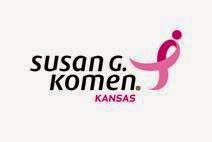Did you know that there are more than 2.9 million breast cancer survivors in the U.S.? As we continue to work so that the number of people who have had breast cancer drops, the sheer number of survivors shows the great strides that have been made in early detection and treatment. Today, most breast cancer survivors lead long and fulfilling lives.
When breast cancer treatment begins, many people think that their last day of treatment will signal the end of this challenge in their lives. But some report ongoing physical and emotional issues that they did not expect. Lasting side effects of treatment and emotional concerns are common. Susan G. Komen has partnered with The Dr. Susan Love Research Foundation in the Collateral Damage from Breast Cancer Treatment project, gathering topics and questions to help document the “cost of the cure” to our lives.
For more on this topic
Research Hot Topic –Survivorship
As the number of cancer survivors grows, so does the number of research dollars being spent on survivorship research. Currently there is close to $6M in open research grants through the National Cancer Institute specific to breast cancer survivorship research. Each year Susan G. Komen invests 13% of their research in survivorship topics.
For more on this topic
Cards for the Cure
Spike Anderson Wichita State Valley Center High School Anderson
For more on this topic
Survivor Tip
Visions of cake and celebration often go along with looking forward to the last day of treatment. But many survivors report that they feel let down, sad, tired and anxious. You find yourself wondering, “Will I ever feel normal again?” Friends and family often think that just because your active treatments are over, you are fully recovered. However, it may take as long as you were in treatment or longer to recover physically and emotionally. It is okay to take the time you need before agreeing to new obligations. If you find you have trouble saying “no” it may help to have a script ready. Practice saying, “No thanks, I’d rather not take on anything extra right now.”
Grantee Spotlight
How do you encourage women (and men) to pay attention to their breast health? According to Erma Patterson, BSN, Health Educator with the Geary County Health Dept., you go to the churches, you go to the beauty shops, and you talk to people at Wal-Mart or Dillons.
“The town knows me as the breast cancer lady,” she said. “And that’s okay.”

No comments:
Post a Comment